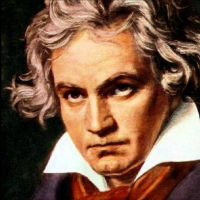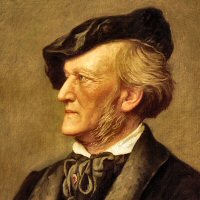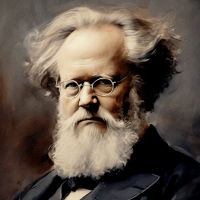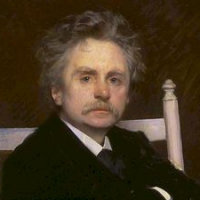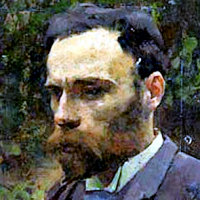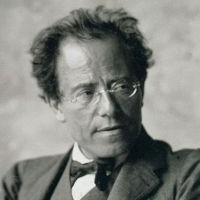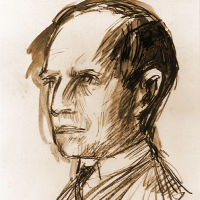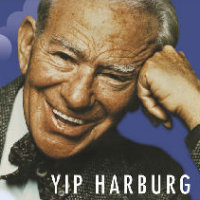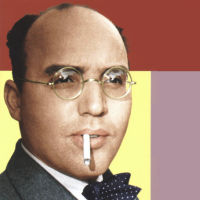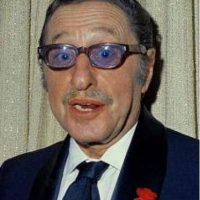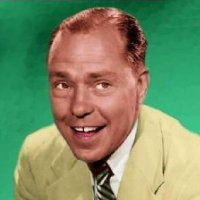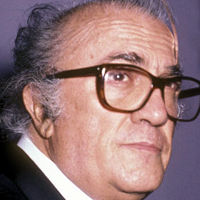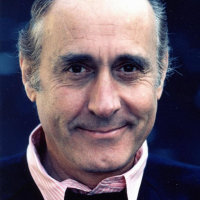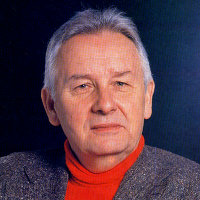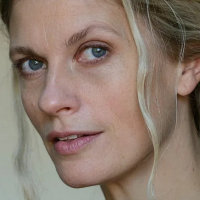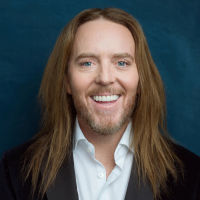| Handout Class Script | Return to Index |
VIDEO LINKS
Almost all the videos shown in class are available on YouTube. The exceptions are that particular scene from Flight Pattern, the bulk of the documentary on Das Lied von der Erde, and the particular performance that I showed. But I managed to find close substitutes for everything.
I go through a lot of videos in deciding what to play in class, and wish I could show more than I actually do. So for every work played in class, I have added at least one supporting video. These are all *asterisked in the list below, as are all other items not played in class. Here are some further notes on these additions:
- Minchin. A fascinating backstage video of the same song shot from different angles to show how the single-take original was made.
- Grieg. Same song, same singer, but with English titles and touristy clips of the Norwegian fjords.
- Évora. A different song with a similar feeling of nostalgia, and a video shot apparently in a bus moving through Cape Verde.
- Arlen. All the Wizard of Oz clips played in class, plus a cover of “Over the Rainbow” by the Hawaiian singer Israel Kamakawiwo'ole. This shows just how far a cover can go, but apparently it has become a hit in its own right!
- Mancini. A cover of “Moon River” in the androgynous voice of Frank Ocean that rivals the above in its departure from the original. This is accompanied by a video added by someone else, equally different, but I rather like it. I also added a blog post explaining the origin of both the original song and the Ocean version.
- Weill. A performance of the original tango in Marie Galante before it ever became a song, plus two renditions of the song itself. The first, by Barbara Hannigan and Sir Simon Rattle, is one I have shown before; it is part of a film by Matthieu Amalric. The other is part of a recording session by Fatima Said, surely the most beautiful singer to ever record it.
- Pite. Only the central pas-de-deux of Flight Pattern is available as a continuous clip, but I added two extended interviews with the choreographer. The first focuses on the rehearsal process, but the second includes newsreel footage of actual refugees, connecting the ballet with its real-world inspiration
- Gorecki. I include links to the Symphony of Sorrowful Songs by Henryk Gorecki to which Pite's ballet is set. She uses only the first movement, which I include below in an audio with occasional but mostly appropriate images (as opposed to the over-the-top Holocaust images in some other videos, as if the music needed extra reinforcement). The performance that moved me most is by Beth Gibbons with a Polish orchestra; not only her voice but also her face speaks volumes. The most effective movement of this is the third, which has only English titles. The complete work is also available, but the English overlaps the Polish text, making it almost unreadable.
- Beethoven. My own two videos that I showed in class, plus an unannotated performance of the complete quartet by the same group.
- Wagner. In addition to Isolde’s Liebestod, as played in class though without titles, we have the complete Chérau/Barenboim production from which that was taken—remarkable for its timeless simplicity and absence of medieval trappings. The very opening of the opera, which I discussed, is also the subject of a very approachable commentary by actor Stephen Fry.
- Mahler. Jason Stark’s documentary, Everywhere & Forever, is out of print, but the substantial trailer gives at least a sense of it. Similarly, the performance video I showed, by Kurt Sanderling, is no longer available, but among the half-dozen live performances out there, I have chosen the classic one by Leonard Bernstein, whose passion shines through every moment. He also gives a spoken introduction that is immensely informative if you ignore the Chinese titles. Finally, if you need titles in English, I have two alternatives: a live performance from a provincial orchestra in Spain, and an audio conducted by Carlo Maria Giulini that has well-chosen Chinese artworks along with the text.
| MINCHIN | |||
| The Absence of You |
* Official video * Backstage video (the making of the above) |
||
| GRIEG | |||
| Peer Gynt |
* Solveig's Song (live)
(Sissel Kyrkjebø) * Solveig's Song (illustrated) (the same, with fjords and titles) |
||
| ÉVORA | |||
| Various songs |
* Sodade * Petit pays (video in Cape Verde) |
||
| ARLEN | |||
| The Wizard of Oz |
* "We're off to see the Wizard" * "Somewhere over the rainbow" (Judy Garland) * — instrumental version (Yo-Yo Ma) * — cover by Israel Kamakawiwo'ole |
||
| MANCINI | |||
| Moon River |
* In Breakfast at Tiffany's
(Audrey Hepburn) * Cover by Frank Ocean (with unofficial video) * History of the song (both versions above) |
||
| WEILL | |||
| Youkali |
* As seen in class
(Teresa Stratas, Fellini images) * Marie Galante tango (Rome Opera) * Fatma Said (part of recording session) * Barbara Hannigan (film by Matthieu Amalric) |
||
| PITE | |||
| Flight Pattern |
* Crystal Pite on her ballet
(with rehearsal sequences) * — another interview (with real-life images) * — central pas-de-deux (Kristen McNally, Marcelino Sambé) |
||
| Gorecki: Symphony 3 |
* Movement 1, with evocative images
(Teresa Erbe) * Movement 3, with English titles (Beth Gibbons, English only) * Complete symphony (Beth Gibbons, various languages) |
||
| BETHOVEN | |||
| String Quartet, Op.135 |
* Themes in the last movement
(my video) * Last movement, annotated (as shown in class) * — complete performance of the above (Ariel Quartet) |
||
| WAGNER | |||
| Tristan und Isolde |
* Prelude on piano
(as shown in class) * Isolde's Liebestod (as shown in class, no titles) * Full production (2007 La Scala, English titles) * The "Tristan Chord" (documentary by Stephen Fry) |
||
| MAHLER | |||
| Das Lied von der Erde |
* Jason Starr: Everywhere & Forever
(trailer of video shown in class) * Bernstein, cued to last movement (Christa Ludwig, René Kollo) * Bernstein introduction (excuse annoying Chinese titles!) * Illustrated, with titles (Giulini, 1984) * Live, with titles (Portillo Festival) |
||



















